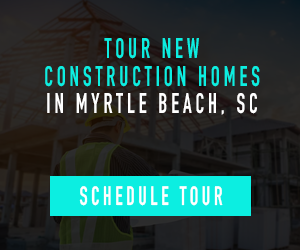
As we head into 2025, I’m optimistic about the Southern Nevada real estate market and the opportunities it presents. While the economic conditions are certainly shifting, I see several factors that could drive activity and create a dynamic year ahead.
Economic landscape and interest rates
The political climate is changing, and I believe this will contribute to a heating-up of the real estate market in the new year. While we will likely not experience anything like we did in 2021 or 2022 – those years were not typical and nor do we want them to be — there are clear signs of improvement.
While the Fed recently dropped rates another quarter, they are insisting that rate cuts will be nominal at most moving into 2025. Just because they said this does not mean there won’t be added pressure to continue to bring down rates given they play a significant role in affordability. While inflation and interest rates typically go hand in hand, there is a chance that our inflation numbers will not reach the Fed’s target of 2%. However, I’m confident we’ll see a slight dip in interest rates to bring us to the low 6’s and with a slight buy down, high 5’s which will provide a window for motivated buyers who have been sitting on the sidelines to finally make their move.
Buyer and seller behavior
I’ve had countless conversations with potential buyers who are ready for a change, but are not ready to let go of their current mortgage rates in the 3 or 4 percent range. If we see rates dip into the low 5 percent range, this will reignite the market. This would be a stretch and while most experts believe we will remain in the low 6’s, we’ll still have the opportunity to experience an elevated level of real estate activity.
On the seller side, as affordability improves and traffic increases, so will competition. More buyers in the market mean more offers, which drives prices up for great properties. This means some sellers might see their properties moving quickly. However, I don’t anticipate the market getting out of hand unless rates were to drop too quickly, leading to an unsustainable surge in buyer traffic.
Luxury vs. entry-level markets
Southern Nevada’s luxury market remains incredibly strong. Las Vegas continues to attract affluent buyers who value our city’s mix of sports and entertainment, and those looking to avoid state income tax. With popular events like Formula 1, NFL, MLB, NHL, WNBA and a rumored NBA team coming to Las Vegas, this city is a playground for the high net-worth. These buyers aren’t worried about interest rates or affordability — they’re drawn to what Las Vegas offers. For that reason, prices have continued to climb and I don’t think they have hit a ceiling just yet.
On the other hand, entry-level and mid-tier markets are facing more challenges. We are a city built on hospitality and there are many who work for and run our resorts, restaurants, casinos and more. There are over 154,000 hotel rooms that are being serviced regularly and more than 2,500 restaurants — not to mention valets, performers and the list goes on. Up until a few years ago, Las Vegas was very affordable for a wide range of income levels, but that’s becoming increasingly difficult. Inflation and high rates have created hurdles for many first-time buyers. However, with rate drops and a decrease in inflation, we can start to address these challenges and help more people begin building wealth through real estate.
Trends shaping our market
New events like Formula 1 and the Super Bowl are reshaping the Las Vegas market. They don’t just boost the luxury market — they’re also attracting corporations to consider Las Vegas as a relocation destination. Just last year, I attended Preview Las Vegas, an event hosted by the Las Vegas Chamber of Commerce, where we discussed how the city is becoming increasingly attractive to businesses. This interest will only add to the demand across all market segments.
Some have wondered if “move-up” buyers will be trending more in 2025. We’re seeing some activity, but it’s often driven by necessity — such as job relocations or growing families — rather than a simple desire for something new. Until we see a significant dip in inflation, affordability will remain a hurdle for many in this segment of the market.
Troy Reierson is the CEO of Americana Holdings, a wholly owned subsidiary of HomeServices of America, Inc.
This column does not necessarily reflect the opinion of HousingWire’s editorial department and its owners.
To contact the editor responsible for this piece: [email protected].
Related
First Time Home Buyer FAQs - Via HousingWire.com










